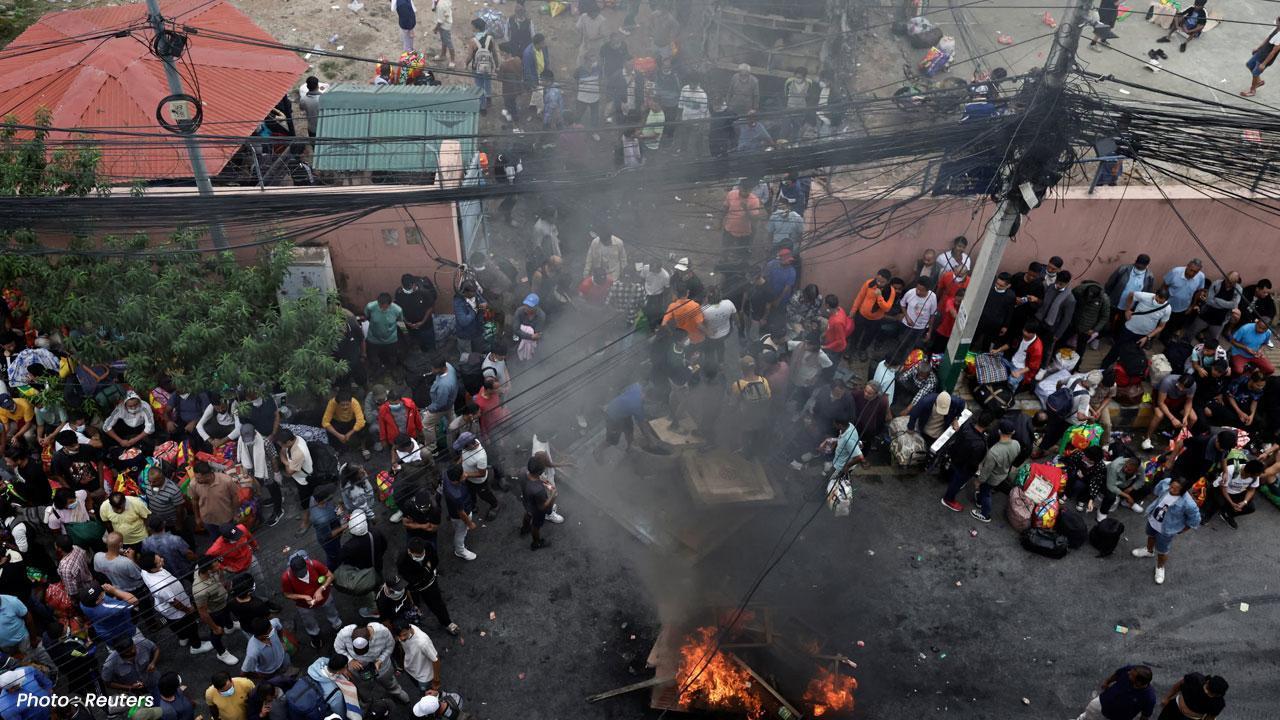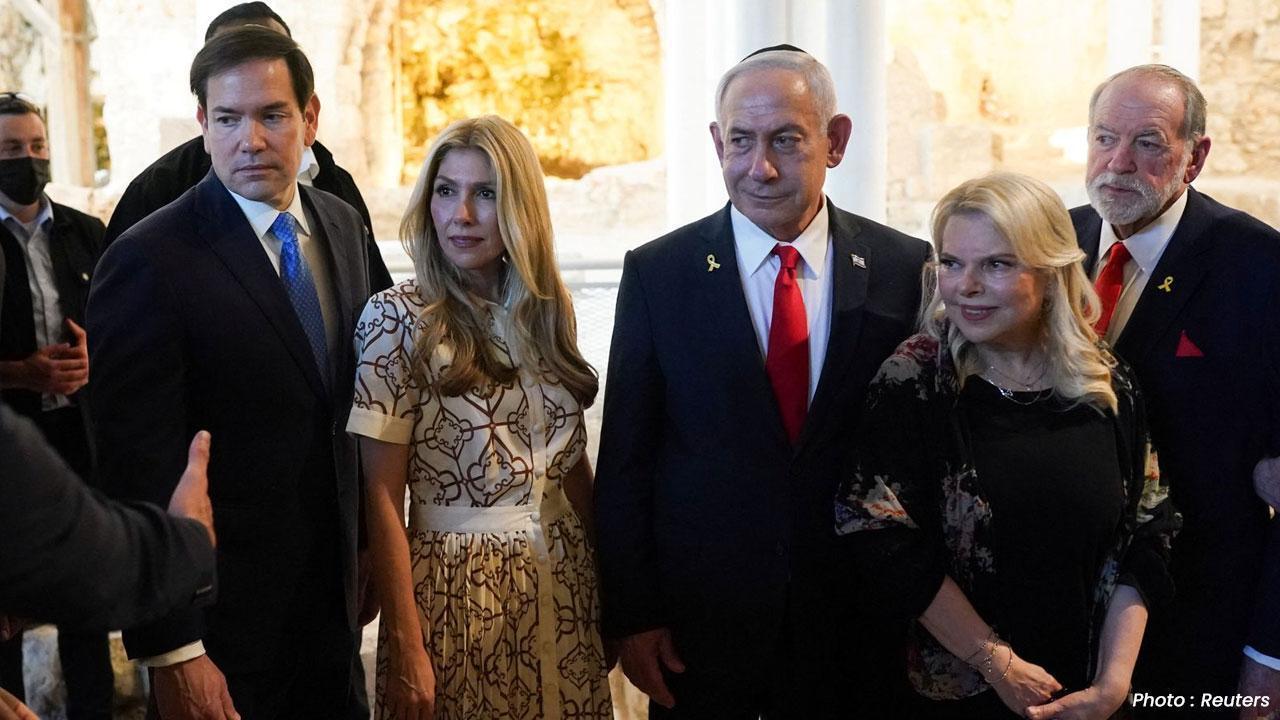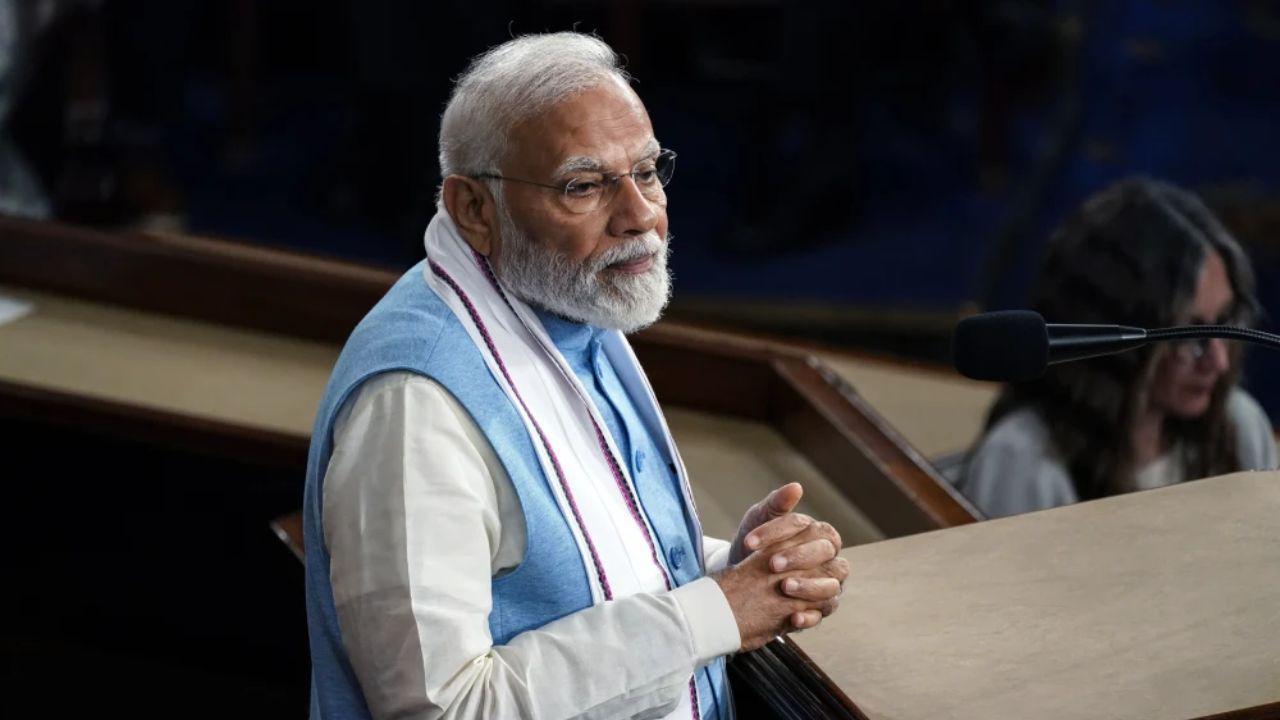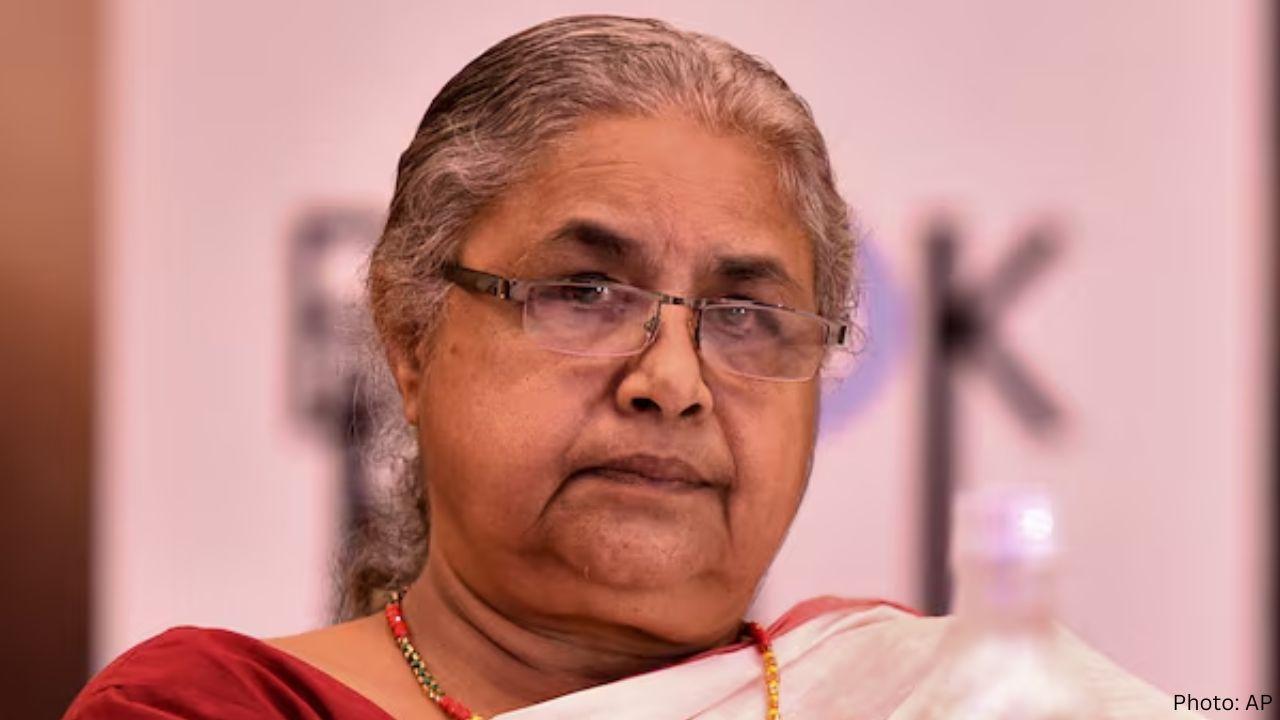
Join 10k+ people to get notified about new posts, news and tips.
Do not worry we don't spam!

Post by : Raman
North Korea has once again firmly stated that it is a nuclear-armed country, and this status cannot be reversed. The country’s leaders have called the international demand for denuclearisation a “political provocation” and emphasized that any attempts to change North Korea’s nuclear stance will fail. This latest statement highlights Pyongyang’s determination to continue strengthening its nuclear and military capabilities despite pressure from the United States and other countries.
North Korea also noted that it has not had official relations with the International Atomic Energy Agency (IAEA) for more than 30 years. The IAEA is the global organization responsible for monitoring nuclear activities and ensuring that countries comply with international treaties related to nuclear weapons. North Korea withdrew from the IAEA in 1994 after disputes over inspections. The country argued that the agency was being used by the United States to interfere in its internal affairs and infringe upon its sovereignty.
Historical Context of North Korea’s Nuclear Program
To fully understand the current situation, it is important to look at the history of North Korea’s nuclear program. The country began developing nuclear technology in the 1950s and 1960s, initially with civilian purposes in mind, such as electricity generation. However, over the decades, the focus gradually shifted toward military use.
In the 1990s, North Korea’s nuclear ambitions became a major international concern. The country signed the Nuclear Non-Proliferation Treaty (NPT) in 1985, but tensions rose over inspection disputes with the IAEA. In 1993, North Korea announced its intention to withdraw from the NPT, citing what it called unfair treatment and threats to its national security. The following year, North Korea formally ended its cooperation with the IAEA and withdrew from the organization. This move marked the beginning of North Korea’s isolation in nuclear affairs and set the stage for decades of conflict and negotiation with the international community.
North Korea’s Official Statement on Nuclear Status
In its most recent statement, North Korea emphasized that its nuclear status is “permanently enshrined” in the nation’s law. The country declared this status “irreversible” and rejected the legitimacy of external pressures or interventions. According to Pyongyang, any attempts to interfere with its nuclear program, especially by the United States or international organizations, are destined to fail.
The statement also criticized the IAEA, claiming that the agency has no legal authority or moral justification to interfere in the internal affairs of a country that is outside the NPT. North Korea stressed that it remains a “responsible nuclear-armed state” and will continue to strengthen its military and nuclear capabilities.
Kim Jong Un’s Recent Military Inspections
The announcement follows recent visits by North Korean leader Kim Jong Un to weapons research and testing facilities. During these visits, he reaffirmed the country’s dual focus on building nuclear forces and conventional military forces. Kim emphasized that North Korea will continue to modernize its military and enhance its strategic defense capabilities.
Since the failed denuclearization summit with the United States in 2019, North Korea has repeatedly stated that it will not give up its nuclear weapons under any circumstances. The country views its nuclear program as essential for national security and a critical deterrent against foreign threats.
International Reaction to North Korea’s Statement
North Korea’s latest declaration has raised concerns among many countries, particularly the United States, South Korea, Japan, and European nations. The United States has long called for North Korea to dismantle its nuclear weapons and rejoin international monitoring agreements. These efforts have included sanctions, diplomatic negotiations, and international pressure through the United Nations.
However, Pyongyang has consistently resisted these pressures. It views its nuclear weapons as a symbol of sovereignty and a necessary tool to protect itself from external aggression. The North Korean government has repeatedly accused the United States of using international organizations to undermine its independence and interfere in its internal affairs.
Implications for Regional Security
North Korea’s refusal to denuclearize and its commitment to expanding its nuclear arsenal have serious implications for regional security. Neighboring countries such as South Korea and Japan remain on high alert, as they face potential threats from North Korea’s growing missile and nuclear capabilities. Both countries have invested heavily in missile defense systems and are actively coordinating with the United States to monitor and respond to potential attacks.
The Korean Peninsula remains one of the most volatile regions in the world due to these tensions. Any miscalculation or escalation could have significant consequences not only for North Korea and South Korea but also for Japan, China, and the broader Asia-Pacific region.
The Role of the United States and Diplomatic Challenges
The United States has been a central player in efforts to address North Korea’s nuclear ambitions. Over the years, various U.S. administrations have employed a mix of diplomacy, sanctions, and military deterrence to encourage Pyongyang to denuclearize. Despite these efforts, progress has been limited, and North Korea has repeatedly rejected U.S. demands.
Experts argue that North Korea’s insistence on retaining nuclear weapons is a strategic choice. By maintaining and expanding its arsenal, the country increases its bargaining power in international negotiations. It also sends a clear signal to other nations that North Korea will not compromise on issues related to national security.
Diplomatic efforts face additional challenges due to North Korea’s isolation and strict control over information. The country tightly manages communications with the outside world, making it difficult for international negotiators to accurately assess its intentions or verify compliance with agreements.
Economic and Political Motivations
North Korea’s nuclear program is not just about military strength; it also serves political and economic purposes. Domestically, the program reinforces the authority of the ruling regime and helps unify the country under a sense of national pride. The government frequently presents its nuclear achievements as a major accomplishment, portraying the country as powerful and self-reliant.
Economically, the program allows North Korea to engage in international negotiations that can result in relief from sanctions, aid, or other concessions. By leveraging its nuclear capabilities, North Korea seeks to maintain strategic autonomy while navigating complex geopolitical pressures.
Expert Analysis
Analysts note that North Korea’s recent statements are likely aimed at strengthening its position in any future talks with the United States or other countries. By emphasizing that its nuclear status is “irreversible,” Pyongyang signals that it will not negotiate away its nuclear weapons lightly.
This stance also reflects North Korea’s broader approach to international relations: maintaining independence while projecting power. The country’s leadership believes that nuclear weapons are essential for deterrence, regime survival, and global recognition.
Potential Future Developments
Looking ahead, North Korea’s commitment to nuclear weapons suggests that tensions on the Korean Peninsula will continue. International organizations, including the United Nations, will likely maintain sanctions and monitoring programs to prevent the proliferation of nuclear weapons.
Diplomatic efforts may continue, but they will need to account for North Korea’s strong stance and its perception of nuclear weapons as vital to national security. Negotiators may need to explore new strategies that balance security concerns with incentives for cooperation.
Meanwhile, neighboring countries and global powers will closely monitor North Korea’s activities, including missile tests and military developments. The international community will continue to seek ways to reduce the risk of conflict while addressing the challenge posed by a nuclear-armed North Korea.
North Korea’s declaration of its nuclear status as “irreversible” highlights the complex challenges facing global security and diplomacy. The country remains committed to strengthening its nuclear and conventional forces, rejecting external pressures, and asserting its sovereignty.
For the international community, this means continued vigilance, strategic planning, and careful diplomatic engagement. The situation underscores the importance of dialogue, but it also demonstrates the limits of influence when dealing with a country determined to pursue its nuclear ambitions.
As North Korea continues to assert its independence and military strength, the world faces the ongoing challenge of balancing pressure, diplomacy, and regional stability with the reality of a determined and nuclear-armed nation.
North Korea’s firm stance ensures that it will remain a central issue in global security discussions for the foreseeable future. The country’s nuclear program is now a permanent feature of international relations, shaping strategies, policies, and alliances in East Asia and beyond.
North Korea nuclear, North Korea news, Kim Jong Un, North Korea IAEA, nuclear weapons










Lippo Di Carrara wins UAE President’s Cup Derby at Doncaster
Lippo De Carrere shines at Doncaster, winning the UAE President’s Cup UK Arabian Derby, the richest

Jaismine Lamboria Wins World Boxing Gold for India
India’s Jaismine Lamboria claimed World Boxing gold, while Nupur Sheoran earned silver and Pooja Ran

Sri Lanka beat Bangladesh by 6 wickets in Asia Cup 2025 opener
Sri Lanka started their Asia Cup 2025 campaign with a six-wicket win over Bangladesh, powered by Nis

PM Modi Lays ₹6,300 Crore Projects in Assam Criticizes Congress
PM Modi accuses Congress of backing infiltrators, lays ₹6,300 crore health and infrastructure projec

Sushila Karki Becomes Nepal’s First Woman Prime Minister
Eminent jurist Sushila Karki, 73, becomes Nepal’s first woman prime minister after Gen Z protests to

Netanyahu gambled by targeting Hamas leaders in Qatar. It appears to have backfired
Netanyahu’s airstrike on Hamas leaders in Qatar failed, hurting global ties, angering allies, and ra